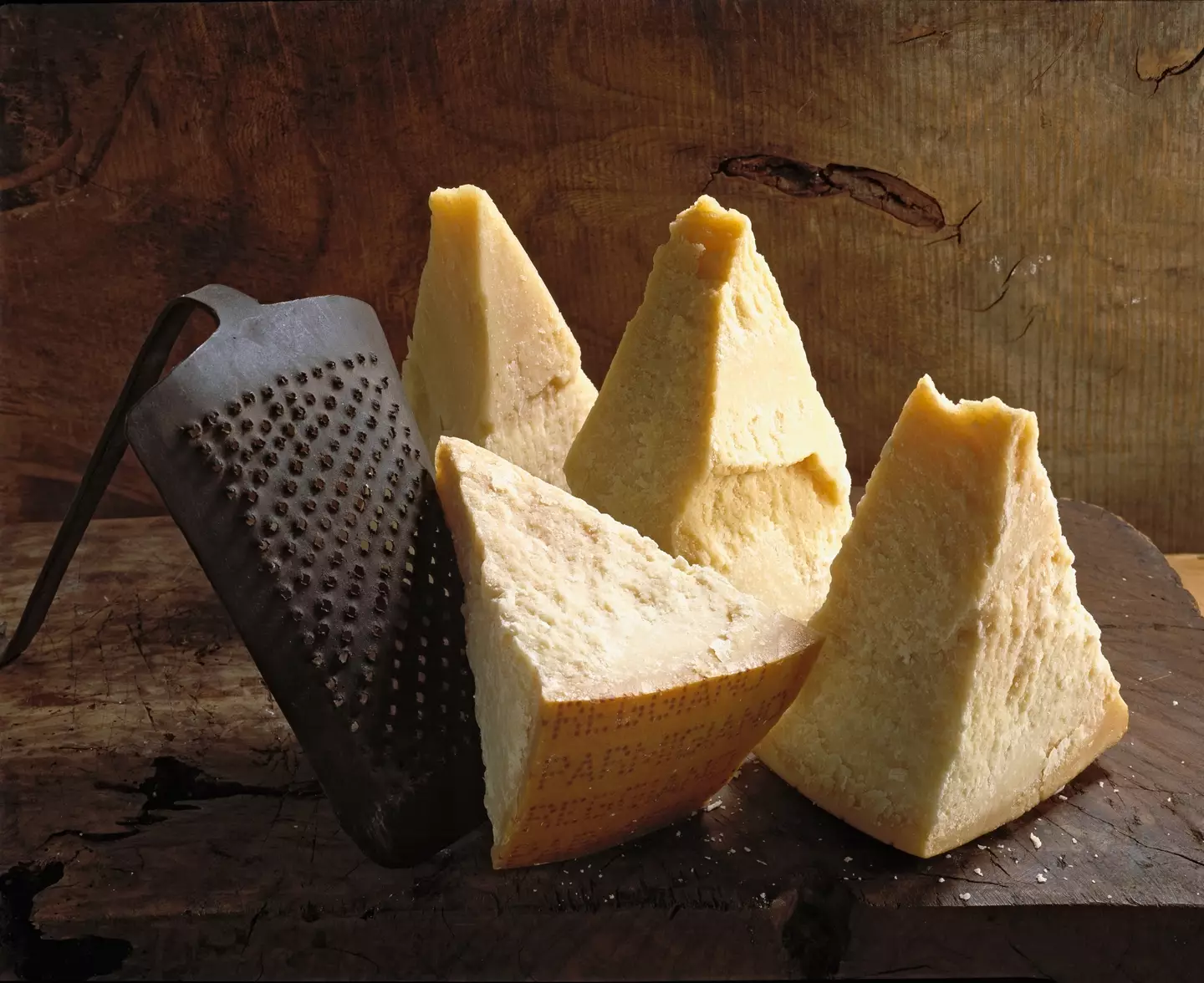There are very few dishes in this world that aren't improved by the addition of a decent amount of cheese, and the undisputed king of this extra helping of cheese is Parmesan.
It's as easy to sprinkle over your food as salt, pepper or whichever your chosen powdered condiment is while not overpowering the dish, unless of course you pour mountains of the stuff on.
When you're buying Parmesan cheese, you're also paying for the genuine article as there's a requirement in Europe for only cheese made in certain regions of Italy such as Parma, Reggio Emilia and Modena to call itself Parmesan.
Advert
It's basically along the same lines of the 'champagne isn't champagne unless it comes from the Champagne region of France, otherwise it's just sparkling wine'.
While this delicious cheese absolutely flies off the shelves and plenty of kitchens have some to shake atop a meal of whatever dish has just been made, there are some people put off by what actually goes into it.

Parmesan cheese is made from unpasteurised cow's milk which gets whey added to it, and that's the liquid that remains after milk has been curdled and strained.
They then heat it up a bit and add something called calf rennet, which is where some people get put off their dining experience.
Advert
See, calf rennet is a set of enzymes produced in the stomachs of baby cows, so in your traditionally made Parmesan cheese there's bits of calf stomach whirling around in there.
It's put some people off, and frankly it makes you question how the human race invented half of the foods we buy in the first place.
At some point in history somebody decided they were going to milk cows, curdle the milk and make cheese from it and then add calf rennet to the mix.

While the early days of food science might have been very strongly in the 'throw ideas at the wall and see what sticks' camp, it has turned out some very popular dishes.
Advert
Parmesan cheese is one of the most popular cheeses in the world, though the addition of rennet means they're not really suitable for vegetarians as it comes from animals killed for their meat.
Farmers aren't killing calves exclusively for their rennet, it's more of a by-product that gets used, but the animal is not surviving the process.
This has put some people off the cheese, even if it is delicious, with one Twitter user writing: "Just found out that Parmesan has calf enzyme in it, uh. And they have to kill the calf to extract it too. It's so bad like it's not even necessary to add that in."
Another wrote: "Parmesan is made from calf rennet. What point is it OK to kill baby animals & use their enzymes for the little bit of cheese on your dough."
So next time you reach for that Parmesan cheese, you'll know exactly what went into making it, though whether that'll stop you from sprinkling it over your meal is another question because there's a reason it's so popular in the first place.
Topics: Food And Drink